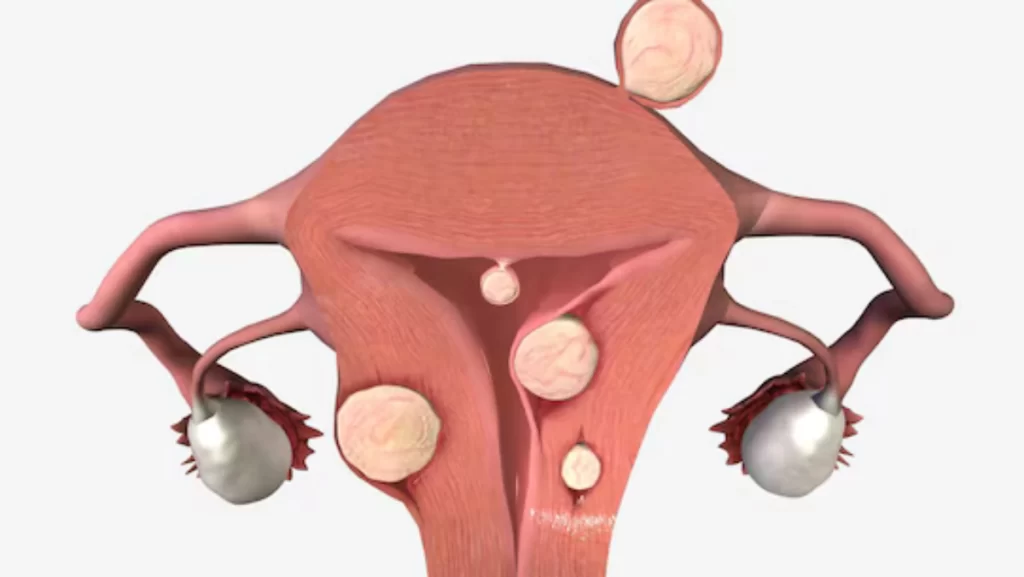Overview of Ovarian Cysts and Cancer
Ovarian cyst cancer is a rare but serious condition. Early detection and proper ovarian cyst cancer treatment can significantly improve outcomes. In this blog, we will discuss the best ways to address ovarian cyst cancer treatment, including surgeries, medication, and care at top hospitals like Deepa Hospital. Whether you’re looking for the best doctor for ovarian cyst treatment or interested in learning more about the ways to remove ovarian cysts, this post will guide you through the process.
Ovarian cysts are usually harmless and often go away on their own. However, when a cyst becomes problematic, particularly if it’s cancerous, medical attention is required. Ovarian cyst cancer treatment varies depending on the size, type, and nature of the cyst, as well as the patient’s overall health.
Some cysts may become cancerous over time, so regular “ovarian cyst check up” appointments are crucial for monitoring your health. Early detection can make a big difference when it comes to treatment outcomes.
Types of Ovarian Cysts
- Functional Cysts: These are the most common types and typically harmless. They form during the menstrual cycle and often disappear without treatment.
- Dermoid Cysts: These contain tissue like hair or skin. They are usually benign but may require removal.
- Cystadenomas: These form on the outer surface of the ovary. Some can become quite large, leading to complications.
- Endometriomas: Caused by endometriosis, they can attach to the ovaries and affect fertility.
Though most ovarian cysts are benign, some may turn malignant, requiring urgent ovarian cyst cancer treatment.
Recognizing the symptoms of ovarian cyst cancer is critical for early detection and treatment. Some of the common symptoms include:
- Persistent bloating or abdominal swelling
- Pain in the lower abdomen or pelvis
- Difficulty eating or feeling full quickly
- Frequent urination or constipation
- Fatigue or sudden weight loss
- Irregular periods or unusual bleeding
If you experience any of these symptoms, it is essential to seek medical advice for an ovarian cyst check up to ensure timely diagnosis and care. The best way to remove ovarian cysts, particularly cancerous ones, may involve surgery or other medical interventions.
Treatment Options for Ovarian Cyst Cancer
At Deepa Hospital, specialized care is provided for ovarian cyst cancer treatment. Depending on the severity and type of the cyst, treatment plans may include:
1. Medication:
- For benign cysts, doctors may recommend hormonal treatments like birth control pills to regulate the menstrual cycle and prevent the formation of new cysts.
- Pain medications can also be used to relieve symptoms, especially in the early stages.
2. Surgical Removal:
- Surgery is often the best way to remove ovarian cysts, especially if they are large, persistent, or cancerous. Laparoscopic surgery is a common approach for smaller cysts.
- If the cyst is malignant, a more extensive surgery, such as a hysterectomy, may be required.
3. Chemotherapy and Radiation:
- For ovarian cyst cancer treatment, chemotherapy and radiation may be recommended, particularly if the cancer has spread beyond the ovaries.
Deepa Hospital offers a range of treatments that focus on removing cysts safely and effectively, using the latest medical technologies.
Recovery from Ovarian Cyst Cancer Treatment
Recovery time from ovarian cyst cancer treatment varies depending on the type of procedure performed. For example:
- Laparoscopic Surgery: This minimally invasive procedure typically involves a quicker recovery, often within two to four weeks.
- Open Surgery: Recovery from more invasive procedures, such as a hysterectomy, may take longer, usually about six to eight weeks.
Post-treatment care is essential, which includes follow-up appointments, lifestyle changes, and sometimes continued medication to prevent recurrence. Deepa Hospital provides comprehensive post-treatment care to ensure a smooth recovery process.
While ovarian cyst cancer cannot always be prevented, regular ovarian cyst check up appointments and a healthy lifestyle can reduce the risks. Some preventive measures include:
- Maintaining a healthy diet and weight
- Avoiding smoking and excessive alcohol consumption
- Using oral contraceptives, as prescribed by your doctor, to regulate hormones
- Seeking immediate medical attention for any persistent symptoms
Preventive measures help in managing ovarian cysts early, reducing the chances of them becoming cancerous.


